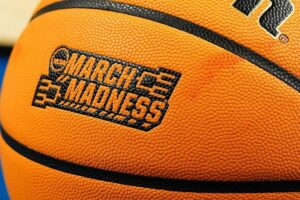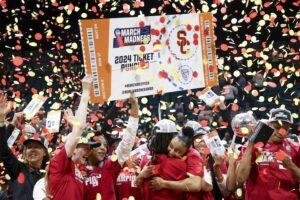
Daily fantasy sports (DFS) are an accelerated variant of regular fantasy sports. In DFS, teams are scored, and winners determined, on a daily basis. Fantasy sports betting is an excellent alternative to online sports betting in the United States because it is legal in the majority of states.
Arizona, Iowa, Louisiana, Montana, and Washington explicitly prohibit betting real money on fantasy sports. In some states, such as Texas and Illinois, the local attorney general issued a statement claiming that daily fantasy sports constitute illegal gambling, but the accuracy of such opinions has not yet been tested. Colorado, Kansas, Indiana, Massachusetts, Missouri, Mississippi, New York, and Tennessee have already regulated daily fantasy sports, guaranteeing that bettors won’t be prosecuted under any circumstances. The largest fantasy sports platforms are accessible from over 40 states.
Choosing a daily fantasy sports operator is different from selecting an online casino or even a poker room because the market has been cornered by two companies – DraftKings and FanDuel. Together, the two providers account for over 90% of all daily fantasy sports traffic, and they’re supported by professional sports leagues, such as the NBA, MLB, and NHL. Second-tier operators like Yahoo DFS or FantasyDraft don’t come close to pulling the same traffic, so inexperienced fantasy players are recommended to join one of the larger platforms.
The issue of trustworthiness is not as vital as with online casinos or sportsbooks because high-profile fantasy sports platform operators have offices in the United States and are required to follow US laws. If you’re looking to join a smaller platform, you can establish its credibility by looking it up on the Fantasy Sports Trade Association website. If the provider you’re interested in isn’t listed there, they might be shady and are best avoided.
Fantasy sports platforms differ in their contest selections, so it’s a good idea to decide what contests you want to play before you choose a platform. For example, FanDuel focuses heavily on major American team sports, such as football (NFL), basketball (NBA), baseball (MLB), and hockey (NHL). Other options include FIFA soccer, WNBA, NASCAR, and golf. On the other hand, DraftKings offers a more extensive selection and also supports contests for mixed martial arts, Canadian football (CFL), EuroLeague basketball, and esports (League of Legends).
Daily fantasy sports welcome promotions are modest compared with bonuses offered by other gambling sites, including traditional sportsbooks and casinos. In most cases, you’ll only receive a single free credit or ticket for a $3-$10 game. This ticket can’t be redeemed for money – you’ll have to enter the contest and win a prize to cash out. On a brighter note, fantasy sports platforms host plenty of guaranteed freerolls, which are often sponsored by companies like GameStop or SeatGeek. In fact, FanDuel advertises itself as a site that allows you to win real cash without having to pay a cent.
The basic daily fantasy sports formula is the same on both FanDuel and DraftKings. You start by selecting a sport and contest, then proceed to select a team of real-world players. You can choose anyone as long as you do not exceed your team’s salary cap, which is typically between $40,000 and $60,000. To put this in perspective, a world-class football player may cost you $14,000, while a less-skilled athlete will set you back between $3,000 and $6,000.
Once you’ve drafted your lineup, you have to wait for the first game of your slate to begin. The fantasy contest’s outcome is determined by the real-world scores and performances of athletes in your team. For example, your team may receive 3 points if one of your athlete’s scores a touchdown.
At the end of the contest, the scores of individual athletes are added to determine the total score of your team, and you’ll receive a payout if that score matches or exceeds the minimum required.
DFS contests can be grouped into the following categories:
– Guaranteed prize pool tournaments – you purchase a ticket to compete for a share of a fixed prize pool. The payout structure is usually top-heavy, so you have to perform well to finish in the money. Prize pool guarantees can get as high as $200,000 ($66 entry) or even $400,000 ($444 entry). Tickets for more casual contests can be as cheap as 25 cents, and both FanDuel and DraftKings allow you to enter plenty of contests for free. Guaranteed tournaments pay out regardlesss of how many players enter.
Beat the Score – the prize pool is shared evenly between all participants who manage to reach a specific score.
Satellites and qualifiers – satellite games award entries to large DFS tournaments instead of cash.
Head-to-head – these contests pit two players against one another. The winner claims the entire prize pool.
Multipliers –allow you to multiply your initial investment by a predetermined factor. The catch is that this factor determines how many participants can win. For example, in a 5x multiplier, only 20% of the contenders will secure a payout. The larger the multiplier, the fewer players finish in the money.
50/50s – these contests pay out an equal share to each player who finishes in the top half of the field.
Friends-only games – private contests that you can create and invite friends to join.
Multipliers and head-to-head contests are sometimes referred to collectively as “cash games.”
Some contests feature late swapping, which allows you to swap an athlete as long as his first game of the slate hasn’t started. For example, if Messi’s first game starts at 08:00 PM, you can swap Messi for another player until 07:59 PM.
Daily fantasy sports are as close to a fair real-money contest as you can get online – operators take a fee from every buy-in and distribute the lion’s share of all prize pools among the top players. This means that your results will be directly tied to the quality of your predictions, your ability to tailor your strategy to meet the needs of specific contests, and your bankroll management. If you’re serious about improving in these three key areas, you will eventually start turning a steady profit even if you start out as a losing or break-even player.
The easiest way to part with your money in the DFS world is by choosing a sport you aren’t familiar with. However, even if you’re a die-hard fan, you need to research the game from a fantasy-sports bettor’s standpoint and make sure you understand how to spot consistent athletes or athletes who are likely to give you an edge in GPPs.
Don’t get complacent – do your research before every draft. DFS platforms offer useful information on each athlete on their drafting page. Pay attention to your players’ recent performance, their health and form, the training they’ve been going through, and any relevant information you can get your hands on. Once you’ve established a pattern, expand your knowledge by reading blogs and news on fantasy sports portals.
Pay attention to the synergy between specific players on the same team. For example, in baseball, some players are more likely to be the first to score, so if they seem to have an easy game ahead of them, their value as daily fantasy sports picks increases.
Successful fantasy sports aficionados focus on beating their rivals; not on predicting the outcomes of real-world games. They adapt their strategy to the contests they participate in. For example, if you focus on 50/50s, you know right from the get-go that your only goal is to beat half of the field. This means you should draft a consistent lineup that has a high chance of producing a decent score but not necessarily the best one. In most scenarios, you don’t have to take significant risks by drafting players known for unpredictable performance.
Conversely, if you play in a tournament, you should focus on the performance ceiling instead of the performance floor. In this case, beating half of your rivals won’t cut it – you need to maximize your odds of securing one of the top spots. This involves taking more risks and means you won’t win as often, but when you do receive a payout, it’s guaranteed to be large.
Just like competitive poker players, daily fantasy sports enthusiasts struggle with variance. Real-life sporting events can be unpredictable, so even if your analysis looks great on paper, you’re never guaranteed a good score. Great 50/50s players usually win about 55%-56% of the time, while people who focus on GPPs tend to finish in the money only in about 15%-20% of all contests. This means that you can’t just put your entire bankroll on the line every time you enter a contest, or you’re guaranteed to go bust sooner than later. Unless you make a habit of entering the same lineup into multiple contests, the general rule of thumb is to have at least 20 buy-ins for head-to-head cash games and 50/50s, and at least 100 buy-ins for GPPs.
Drafting the same team in multiple contests increases variance because a single random event – your team’s real-world performance – impacts the outcome of multiple fantasy games. Consequently, this practice should be treated like participating in higher buy-in games.
50/50 – a contest in which the top half of entrants is paid, and the bottom half loses its entry fees.
Bankroll – the total amount you have at your disposal for daily fantasy sports contests.
Buy-in – the amount you must pay to enter a specific contest.
Ceiling – the maximum number of points a player can score.
Floor – the minimum number of points a player can score.
Rake – the commission you pay to the fantasy sports operator on every buy-in.
Head-to-head – a two-man contest in which only one person receives a payout.
Multiplier – a contest that allows you to multiply your entry fee.
Guaranteed Prize Pool – a contest with a minimum prize pool guarantee.
Qualifier/satellite – a contest that allows you to win a ticket to a higher-buy-in game.
Freeroll – a contest that allows you to win real money without paying entry fees.
A: Yes. Daily fantasy sports betting is a skill-based form of gambling, so if you gain an edge over the competition, you will be able to come out ahead consistently. Keep in mind that many fantasy sports bettors are serious about their hobby and won’t go down without a fight.
A: While both gambling forms require similar analytical skills, sports betting is about predicting the outcomes of specific events and trying to outsmart professional oddsmakers, while fantasy sports contests require you to draft better fantasy teams and outsmart other players. Fantasy sports are competitive by design, while traditional sports betting is a solitary activity.
A: The two biggest platforms differ in supported sports. The action on FanDuel is limited to popular American team sports – football, basketball, baseball, and hockey – as well as FIFA soccer, WNBA, NASCAR, and golf. DraftKings also offers MMA, soccer, Canadian football, EuroLeague basketball, and League of Legends esports. Smaller platforms differ from the big two in game selection, but the limited traffic they receive prevents them from supporting a wider sports variety.
A: This depends on your area of residence. Participating in real money fantasy sports contests is illegal in Arizona, Iowa, Louisiana, Montana, and Washington. Texas, Idaho, Alabama, and Hawaii don’t explicitly prohibit DFS wagers, but fantasy sports platforms don’t offer their services in those states due to the high probability of breaking general anti-gambling laws. Residents of every other state can participate in real money games with no issues. Both FanDuel and DraftKings also offer real money games in Canada.
A: This depends on the platform, but allowing players to check their opponents’ experience is a standard industry practice. For example, FanDuel awards players experience badges, which are visible to everyone and indicate the number of contests a player has won throughout their fantasy sports career. It also hosts games that are available exclusively to beginners, so you won’t be forced to compete with veterans right from the get-go.
A: the fee varies by contest type and platform. Typically, the more expensive the ticket, the lower the fee. For example, DraftKings charges a 5% commission on contests that cost $1,000 or more to enter, but charge over 16% if the ticket price is less than $5.
FanDuel’s commissions are generally more favorable and rarely exceed 10%.
A: Popular daily fantasy sports platforms only accept PayPal and credit card payments. Typically, the deposit limit is set at $10,000, although players from Massachusetts, Maryland, and Tennessee have to deal with lower payment limits ($1,000-$2,500) due to local regulations.
A: Withdrawals are almost always handled via PayPal or mailed as checks. Once you request a real money cash-out, you may be asked to verify your account by providing scans of documents that prove your identity and home address. Typically, a scan of your driver’s license and a recent utility bill will do. PayPal withdrawals are usually processed within 48 hours, but check withdrawals can take 7-10 days.
A: Unfortunately, high-traffic fantasy sports platforms do not support Bitcoin or other cryptocurrencies.
The concept of fantasy sports dates back to the 50s and a fantasy golf league founded by an Oakland businessman named Wilfred Winkenbach. Throughout the 60s, local fantasy leagues were established for football and baseball. These leagues weren’t nearly as popular as their present-day counterparts, but this changed in 1980 when New York Times started promoting a fantasy baseball league hosted at an NYC restaurant called La Rotisserie Francaise.
The initial New York Times coverage set off a media storm, and the new pastime became known as rotisserie, or simply roto. Throughout the eighties, many sports experts published books dedicated to fantasy sports, such as Patton’s 1989 “Fantasy Baseball League Price Guide” or Shandler’s 1986 “Baseball SuperSTATS.”
The new industry experienced its first boom in the nineties thanks to the growth of the Internet, but the real revolution came in 2007 with the launch of the first daily fantasy sports platforms. Those platforms allowed sports enthusiasts to win real money without having to wait for season results and to engage in competitive sports-related activities without transgressing against recently-passed federal regulations that outlawed online sports betting in the United States.
On September 8th, 2020, Monkey Knife Fight (MKF), the third-largest fantasy sports gaming platform in North America, announced its acquisition of the daily fantasy sports (DFS) site FantasyDraft. The financial terms of the acquisition were not disclosed.
The deal will allow MKF to absorb FantasyDraft’s assets and significant user base. Already the third-largest DFS site in North America, this acquisition will solidify MKF’s position in a select category of three. In 2017, FantasyDraft acquired Fantasy Aces, creating one of the largest DFS companies behind DraftKings and FanDuel. FantasyDraft has also created many professional endorsements since its launch in 2014 including Jimmy Johnson, Shannon Sharpe, and London Fletcher among others.
“Our acquisition of FantasyDraft is a natural fit for Monkey Knife Fight because of its size and reputation within the DFS industry,” said Bill Asher, Founder and CEO of Monkey Knife Fight. “We are being aggressive in order to gain market share and influence in this ultra-competitive space. This is an important step as once there were four and now there are three.”
Monkey Knife Fight and FantasyDraft have dominated recent Daily Fantasy Sports awards. This summer both were nominated for the significant industry award of 2020 Fantasy Sports Operator of the Year for the EGR Operator Awards. The award winner will be announced in November, with the two organizations being the only companies nominated.
This news comes on the heels of a number of significant announcements by Monkey Knife Fight. In recent months, MKF has entered into partnership deals with teams from various sports leagues, many of which included a focus on giving back to help each local community. In Major League Baseball, partnerships have included the Milwaukee Brewers, San Diego Padres, San Francisco Giants, Minnesota Twins, and the Miami Marlins. In the NFL, Monkey Knife Fight has entered agreements covering the Tampa Bay Buccaneers, Miami Dolphins, and Los Angeles Chargers. Other deals have included the NHL Kings, the MLS Galaxy, and PGA golfer Charley Hoffman.
In early 2017, FantasyDraft was set to acquire FantasyAces.com, which was having financial problems. However, FantasyDraft decided against a full acquisition and FantasyAces declared Chapter 7 bankruptcy.
Still, in an effort to take care of players the CEO of FantasyDraft announced that they would ensure players were paid by acquiring the FantasyAces player base.

After a great week of conference tournament action, and a final goodbye to the Pac-12 conference, the Men’s NCAA Tournament field is set. On Tuesday, the first of 67 games […]

It was a season for record-breaking in women’s college basketball. Multiple scoring records fell, as did records for television viewership. And now we all turn our attention to what is […]

Hard to believe, but this Wednesday, there are baseball games that will count in the standings. The Los Angeles Dodgers and San Diego Padres will play two games in Seoul, […]

The Stadium Course at TPC Sawgrass is one of the most famous places in golf. The Island Green on the 17th is one of the most iconic holes anywhere in […]

In the world of golf, the early season has been dominated by no-names. The PGA Tour needs its stars to step up and start winning. That is definitely the case […]

Sean O’Malley leads UFC 299 this Saturday in Miami, as he makes the first defense of his UFC bantamweight belt. He faces Marlon Vera in the main event in what […]

We have reached the 10-tournament pole for the PGA Tour season, and in the first nine tournaments, it has been good to be a longshot. Last week at the Cognizant […]

British betting operator 888 has terminated its SI Sportsbook and the related branding agreement with legacy media giant Sports Illustrated. The SI Sportsbook is currently live for sports betting in […]
Are you ready to take your online gambling experience to the next level? Sign up for the LetsGambleUSA newsletter and get the latest news, exclusive offers, and expert tips delivered straight to your inbox.